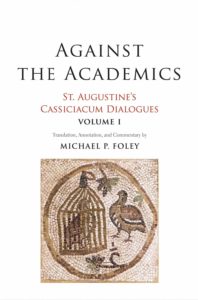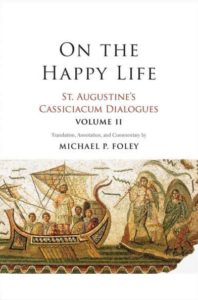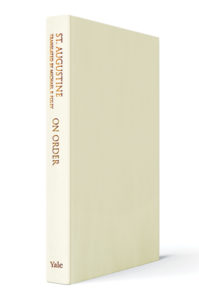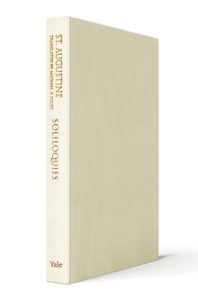
Author’s Corner: Augustine’s Cassiciacum Dialogues
Each week on Credo we welcome you to join us in the Author’s Corner where we will meet a set of authors whose recent books deserve your attention and might even help you grow in your knowledge of theology, history, philosophy, and the scriptures. We hope the Author’s Corner can keep you up-to-date on the most important books published today and where you can find them.
On today’s Author’s Corner we present you with Augustine’s Cassiciacum Dialogues, edited and introduced by Michael P. Foley (Yale University Press).
The first four works written by St. Augustine of Hippo after his conversion to Christianity are dialogues that have influenced prominent thinkers from Boethius to Bernard Lonergan. Usually called the “Cassiciacum dialogues,” these four works are of a high literary and intellectual quality, combining Ciceronian and neo-Platonic philosophy, Roman comedy and Vergilian poetry, and early Christian theology. They are also, arguably, Augustine’s most charming works, exhibiting his whimsical levity and ironic wryness.
Michael P. Foley is professor of patristics at Baylor University. He is the author or editor of several books, including Frank Sheed’s translation of Augustine’s Confessions.
A gainst the Academics, St. Augustine’s Cassiciacum Dialogues, Volume 1 (Yale, 2019)
gainst the Academics, St. Augustine’s Cassiciacum Dialogues, Volume 1 (Yale, 2019)
In this first dialogue, expertly translated by Michael Foley, Augustine and his interlocutors explore the history and teachings of Academic skepticism, which Augustine is both sympathetic to and critical of. The dialogue serves as a fitting launching point for a knowledge of God and the soul, the overall subject of the Cassiciacum tetralogy.
O n the Happy Life, St. Augustine’s Cassiciacum Dialogues, Volume 2 (Yale, 2019)
n the Happy Life, St. Augustine’s Cassiciacum Dialogues, Volume 2 (Yale, 2019)
In this second, brief dialogue, expertly translated by Michael Foley, Augustine and his mother, brother, son, and friends celebrate his thirty-second birthday by having a “feast of words” on the nature of happiness. They conclude that the truly happy life consists of “having God” through faith, hope, and charity.
On Order, St. Augustine’s Cassiciacum Dialogues, Volume 3 (Yale, 2021)
(Yale, 2021)
On Order is the third work in this tetralogy, and it is Augustine’s only work explicitly devoted to theodicy, the reconciliation of Almighty God’s goodness with evil’s existence. In this dialogue, Augustine argues that a certain kind of self-knowledge is the key to unlocking the answers to theodicy’s vexing questions, and he devotes the latter half of the dialogue to an excursus on the liberal arts as disciplines that will help strengthen the mind to know itself and God.
Soliloquies, St. Augustine’s Cassiciacum Dialogues, Volume 4 (Yale, 2020)
(Yale, 2020)
Soliloquies is the fourth work in this tetralogy. Augustine coined the term “soliloquy” to describe this new form of dialogue. Soliloquies, a conversation between Augustine and his reason, fuses the dialogue genre and Roman theater, opening with a search for intellectual and moral self-knowledge before converging on the nature of truth and the question of the soul’s immortality. Foley’s volume also includes On the Immortality of the Soul, which consists of notes for the unfinished portion of the work.

